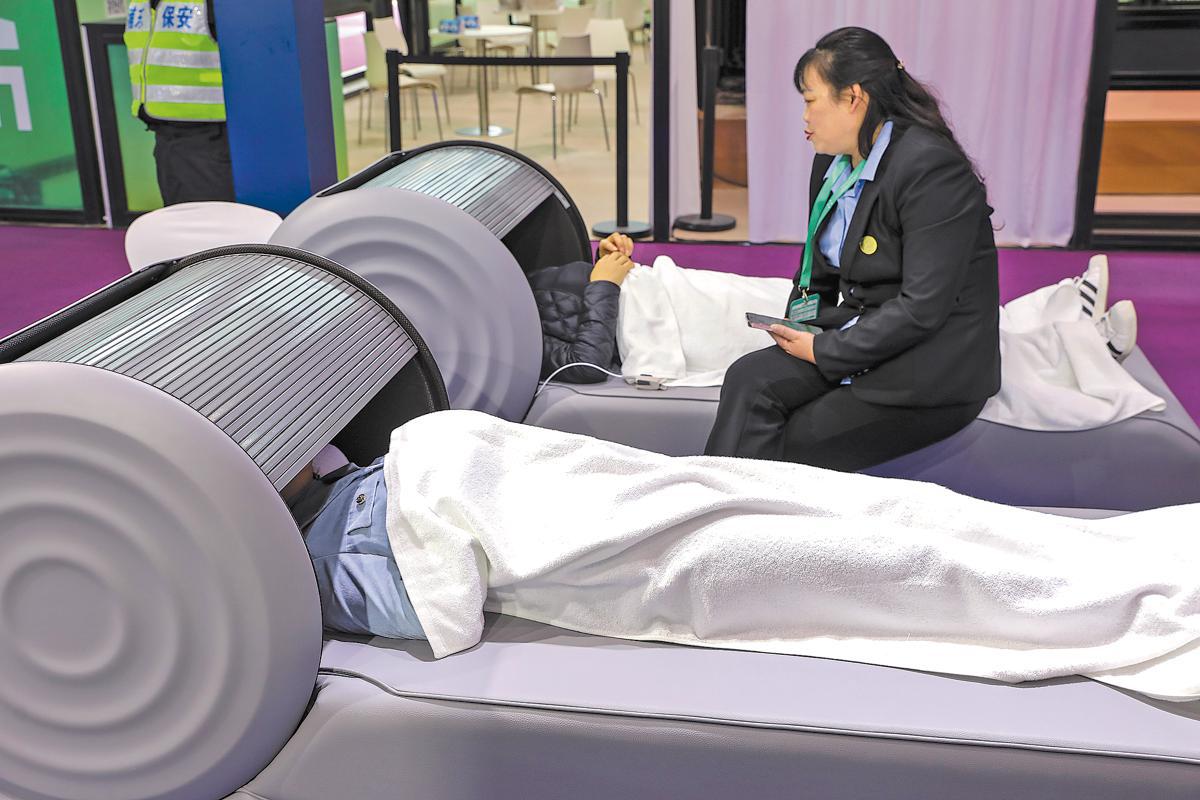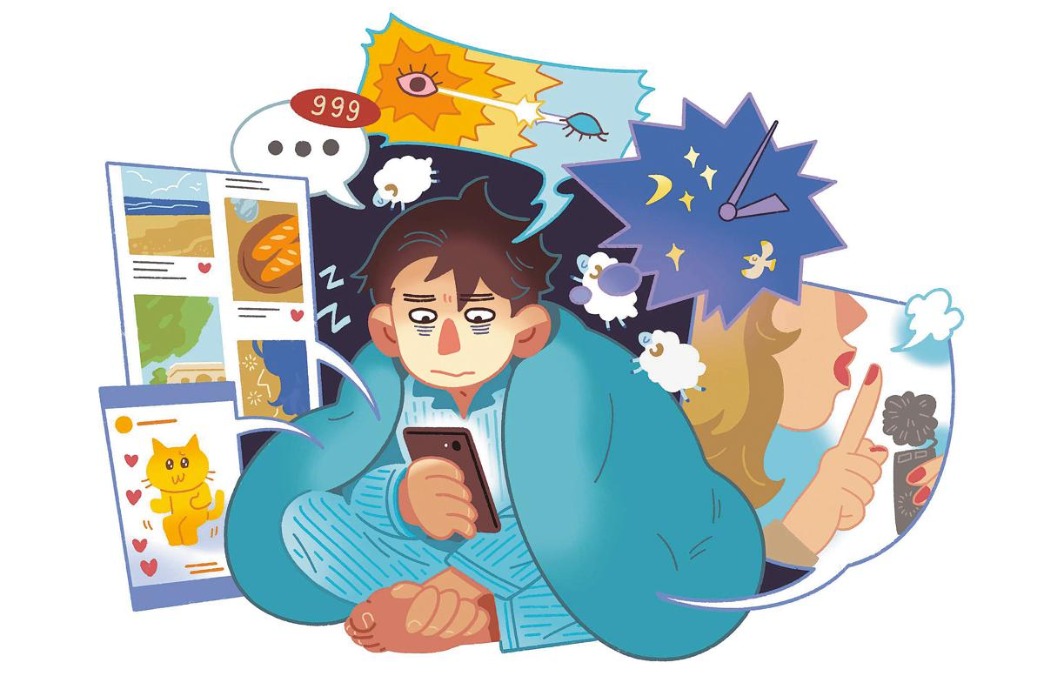Gen Z struggles to catch some Zs
Busy lives, screen addiction, contributing to young people getting less shut-eye


Sleeping smart
According to Zhang Bin, a professor and director of the Sleep Medicine Center at Nanfang Hospital of Southern Medical University, good sleep needs a good routine.
"To ensure healthy sleep, it's important to maintain a consistent sleep and wake time, even on weekends," Zhang said. "Even if you must stay up late or prefer to sleep in on weekends, try to limit the variation to within two hours. Avoid using your phone for an hour before bed. Instead, focus on simple tasks that don't require much thought but do expend energy, such as washing up or tidying things, which can help gradually relax your mind."
Zhang warned the perils of short-term "revenge bedtime procrastination" should not be underestimated.
"Youngsters who indulge in late-night TV shows, short videos, or fiction reading on weekends or holidays until the wee hours often struggle to drift off to sleep at their regular weekday bedtime, and subsequently cannot get up early the next day," he said.
This phenomenon, commonly referred to as the "Monday effect", arises from disrupted sleep patterns. "They will find themselves having social jet lag when the body's natural circadian rhythm is thrown off, as a result they feel as if they have traveled several time zones and feel exceptionally fatigued during workdays," said Zhang.
"Sleep allows the body to recover, preventing cardiovascular and metabolic diseases, while at the same time sleep enhances memory and learning, regulates emotions, and reduces the risk of mental illness and dementia."
Nonetheless, Zhang stressed the importance of balancing the natural body clock with modern lifestyles.
"While relishing the pleasures and conveniences afforded by our phones, we should be aware of their effects of delaying the secretion of melatonin due to the light emitted by the screen. Efforts should be made to minimize disruption to the natural circadian rhythms developed through millennia of evolution," he said.
Zhang suggested avoiding phone use for an hour before bed and replacing it with simple, stress-free activities.
He noted that the fear associated with sleep disturbances often eclipses the condition itself.
In fact, altering one's lifestyle, such as retiring to bed earlier and rising later, refraining from daytime exercise, taking supplements, or altering the living environment solely due to sporadic sleep disturbances, may lead to chronic insomnia.
"These changes disrupt your routine and clash with your natural circadian rhythm, potentially perpetuating short-term insomnia," Zhang said.
"Insomnia itself is not terrifying; overly fretting about insomnia is what truly makes you lose sleep," the sleep expert said.
xunuo@chinadaily.com.cn























